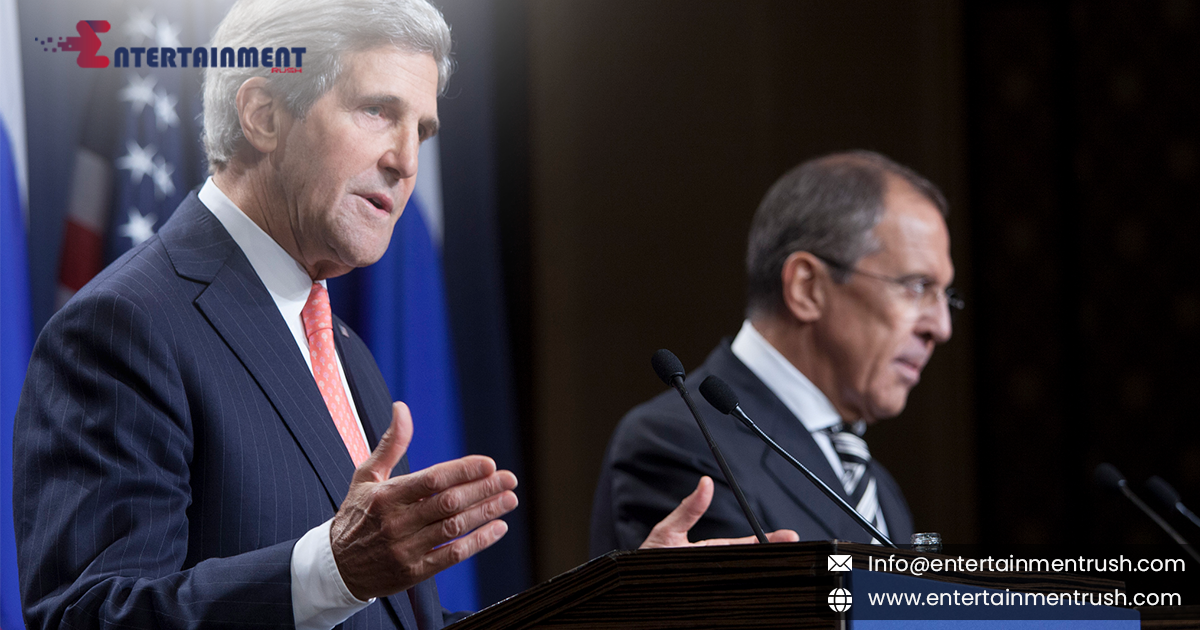In an increasingly interconnected and complex world, the role of American diplomacy is more critical than ever. As the global landscape shifts with rapid technological advancements, geopolitical tensions, and pressing transnational issues such as climate change and pandemics, the United States faces a unique set of challenges and opportunities. The future of American diplomacy hinges on its ability to adapt, innovate, and lead with both strategic acumen and a commitment to global collaboration.
The Geopolitical Landscape: Navigating a Multipolar World
One of the foremost challenges for American diplomacy is navigating a multipolar world where power is distributed among various global and regional players. The rise of China as a formidable economic and military power, the resurgence of Russia as a strategic competitor, and the growing influence of other nations like India and Brazil necessitate a recalibration of U.S. foreign policy. Traditional alliances, such as those within NATO, remain crucial, but they must be complemented by dynamic partnerships that address the diverse interests of emerging powers. Effective diplomacy in this context requires a nuanced understanding of regional dynamics and a willingness to engage in multilateral forums that foster cooperative solutions.
Technological Advancements: Harnessing Innovation for Diplomacy
Technological advancements present both challenges and opportunities for American diplomacy. On one hand, cyber threats and the proliferation of digital disinformation campaigns pose significant risks to national security and the integrity of democratic institutions. On the other hand, technology can enhance diplomatic efforts by improving communication, data analysis, and public engagement. The United States must invest in cyber defenses and develop robust strategies to counteract malicious cyber activities. Simultaneously, embracing digital diplomacy tools can help the U.S. reach broader audiences, foster transparency, and build stronger international partnerships through innovative platforms.
Climate Change and Environmental Diplomacy
Climate change represents one of the most pressing transnational issues of our time, demanding urgent and coordinated international action. American diplomacy has a critical role to play in leading global efforts to combat climate change. This involves not only rejoining and actively participating in international agreements like the Paris Accord but also spearheading initiatives that promote sustainable development and renewable energy. The U.S. can leverage its technological prowess and economic influence to drive global environmental policies, support green innovations, and assist developing nations in their climate adaptation and mitigation efforts. By positioning itself as a leader in environmental diplomacy, the U.S. can forge alliances that transcend traditional geopolitical divides.
Human Rights and Democracy Promotion
Promoting human rights and democratic values has long been a cornerstone of American diplomacy. However, this mission faces renewed challenges in a world where authoritarian regimes are increasingly assertive and where democratic backsliding is observed even in established democracies. The U.S. must navigate these challenges by reaffirming its commitment to human rights while recognizing the complexities of different political contexts. Diplomatic efforts should focus on supporting civil society, advocating for political freedoms, and leveraging economic and diplomatic tools to hold violators accountable. Moreover, the U.S. must lead by example, ensuring that its domestic policies reflect the democratic principles it champions abroad.
Economic Diplomacy: Building Prosperous and Resilient Economies
Economic diplomacy is another vital component of America’s foreign policy strategy. In an era of globalization, economic interdependence offers both opportunities for collaboration and risks of conflict. Trade policies must balance the need for open markets with protections against unfair practices and economic coercion. The U.S. can strengthen economic ties through trade agreements that promote fair labor standards, environmental protections, and mutual prosperity. Additionally, economic diplomacy should focus on fostering innovation, supporting entrepreneurship, and addressing global economic disparities. By promoting inclusive economic growth, the U.S. can help build stable and resilient economies worldwide, which in turn supports global security and stability.
Global Health and Pandemic Preparedness
The COVID-19 pandemic underscored the importance of global health diplomacy. As the world continues to grapple with the pandemic’s aftermath and prepares for future health crises, American diplomacy must prioritize global health initiatives. This includes supporting international health organizations, enhancing global surveillance systems, and facilitating the equitable distribution of vaccines and medical supplies. The U.S. can lead efforts to build stronger global health infrastructures, ensuring that all nations are better prepared to respond to health emergencies. By fostering international cooperation in health, the U.S. can contribute to global resilience and stability.
Engaging with Global Institutions and Multilateralism
Engaging with global institutions and reinforcing multilateralism are crucial for effective American diplomacy. Organizations like the United Nations, World Trade Organization, and World Health Organization play pivotal roles in addressing global challenges. The U.S. must actively participate in these institutions, advocate for reforms where necessary, and work collaboratively to achieve shared goals. Multilateral diplomacy enables the U.S. to pool resources, share burdens, and amplify its influence through collective action. By championing multilateralism, the U.S. can strengthen international norms, promote peace, and foster a more cooperative international order.
A Vision for the Future
The future of American diplomacy lies in its ability to navigate the complexities of a rapidly changing world while seizing opportunities for leadership and collaboration. By addressing geopolitical challenges, harnessing technological advancements, leading climate and environmental initiatives, promoting human rights, fostering economic prosperity, prioritizing global health, and engaging in multilateralism, the U.S. can reaffirm its role as a global leader. This vision for the future of American diplomacy is not just about safeguarding national interests but also about contributing to a stable, prosperous, and just world. In this interconnected era, the success of American diplomacy is intrinsically linked to the well-being of the global community.
